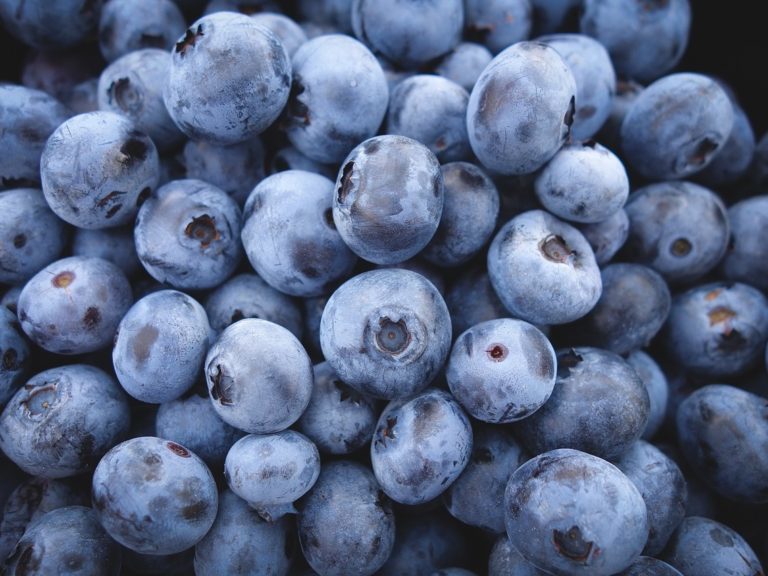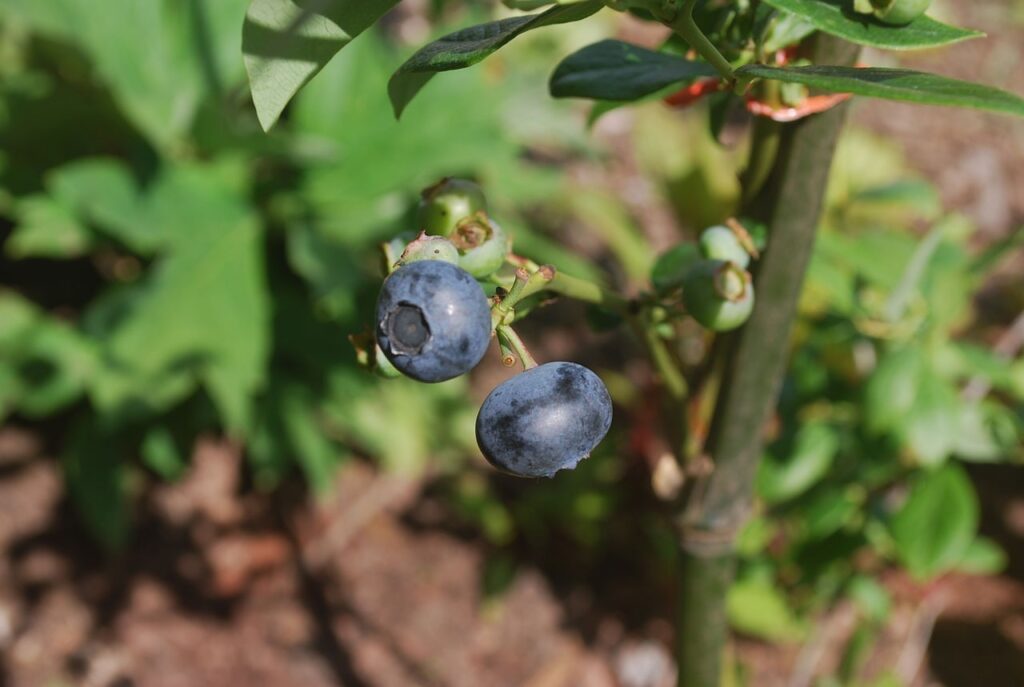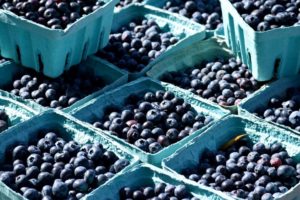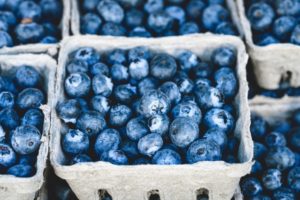Want the Best Blueberry Fertilizer? 5 of the Best
Using the appropriate fertilizer is important for success when growing blueberries. Are you using the right ones?
Not all fertilizers are created equal. The difference between the best ones out there and average ones is drastic. It can mean the difference between healthy sweet fruit and small flavorless fruit.
You already know that blueberry bushes need nutrients, but do you know their special nutrient requirements. To ensure the proper development for your bushes, you will want the best nutrients possible. Unfortunately, not all products are the same and some use higher quality ingredients compared to others. We help take the guess work out of which fertilizer to use.
Here are the highest quality ones that we recommend.
Our Favorites
Winchester Gardens Select Organic Berry Granular Fertilizer
This organic food encourages bigger and healthier berries. Blend it into the top layer of soil around the dripline. Water following application. Apply first in early spring and repeat as needed throughout the season, no more often than every six to eight weeks. Often, less is more when fertilizing berries, so avoid heavy and frequent use. This berry food results in bigger berries and a large crop.
J R Peters Jacks Classic Acid Special Plant Food
Mix with water per instructions and feed into moist soil. Use a light amount with each watering for young bushes. This product lowers soil pH in the developing root zone, resulting in a happy, top-producing plant. Foliage grows greener, which is also good for those bushes that double as ornamentals in the landscape. At harvest time, bigger and juicier berries appear.
Epsoma Holly Tone
Blueberries growing in the landscape need a soil pH between 4-5.5. This is called acid soil. If you’re unsure of your soil’s pH, take a soil test. You will often need to lower the pH when growing berries. Epsoma Holly tone can help with this chore. Mix this granular food into the top layer of soil around your bushes. Water in. Healthy, juicy berries follow. Expect a full crop the third year after planting. This product includes Bio-tone Microbes that provide long-lasting slow-release feeding. It is often used by professional gardeners.
Jobe’s Organics Berry Granular Plant Food
This is a granular product to work into the top level of soil around the dripline of your bushes. If you’re just planting, mix this organic food into the soil and surround the new plants. For established blueberries, feed first in early spring. Then apply one and a half cups every four to six weeks, for bigger berries in abundance. This is a must-have to keep your berries organic. Jobe also works great on strawberries and other fruiting bushes. This product enjoys a five-star rating on Amazon.
Down To Earth Acid Mix
Mix this food for acid-loving plants into the soil around the dripline or incorporate it into the soil for new bushes when planting. Watch your bushes thrive. When using this organic food, you’re building the quality of the soil for years to come. You’re enhancing soil fertility while stimulating the growth of roots, foliage, and fruit. Not only does this 100% natural nutrient blend keep your berries organic, bigger berries and crops result from its’ use. Apply in spring when your bushes sprout foliage.
How to Produce Plump Healthy Berries
I love the sensation of biting into a plump, firm, juicy blueberry and I bet you do too! Producing the perfect berry is hard work, but it can be done with the proper care. They are a favorite crop for many gardeners. They’re simple to grow and produce in most areas of the U.S. Five different types are available, making it easy to find the perfect bushes for your area. To produce blueberries, bushes need the correct amounts of water and nutrients. Let’s dive into some tips in regards to choosing a fertilizer and also raising a healthy plant.
Look for the Proper Nutrients
Blueberries grow most robustly when given nutrients with an N-P-K ratio of about 1-1-1. They also need iron and magnesium. If the fertilizer you buy does not end up delivering enough magnesium, make sure to supplement with MgSO4 which can be found in your local pharmacy sold under the name of Epsom salts. If you buy one of the products above, you will not need to be supplementing with additional nutrients.
Thrive in Acidic Environments
There is more to consider than just the N-P-K ratio. Blueberry bushes also prefer higher acid in the soil. They need an acidic soil to allow their roots to properly take up the nutrients in the soil. The ideal plant food will have acidic ingredients to make the soil less basic.
When to Fertilize
You should strive to fertilize your bushes in early spring before their leaves have fully grown in. Make sure to follow the manufacturer’s instructions.
How to Start
They can grow from seed or from cuttings, but it takes many years for these to produce berries. Plant two to three-year-old bushes to get a crop more quickly. Expect a full crop in the third year of production. If you’re new to growing blueberry plants, research your geographic location for the ideal planting times and care for them.
Plant at least two bushes for the purpose of pollination. Plant in rich, well-draining soil thoroughly amended with finished compost. Keep the soil moist and remember to fertilize. The following are among the most highly rated types of food to encourage bigger, more abundant, and juicier berries.
Bottom Line
Again, I recommend buying the Winchester Gardens Organic Fertilizer. If you want the best blueberries, it’s what you will want. Too many fertilizers that you find at your local gardening store simply will not deliver the optimal nutrients. Don’t be one of the blueberry growers that finds that out too late.
Read more:










